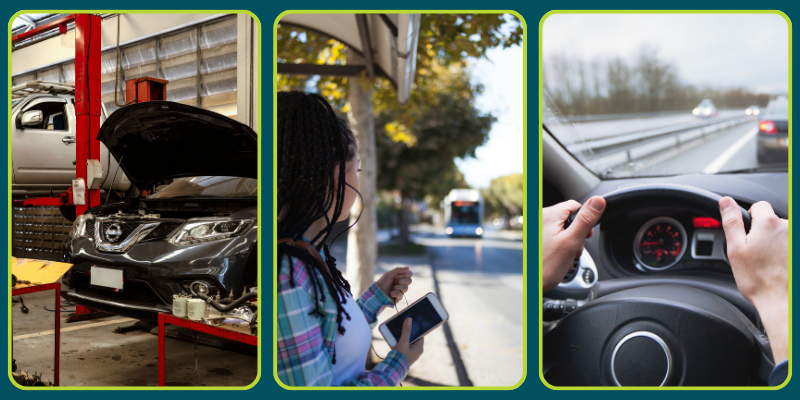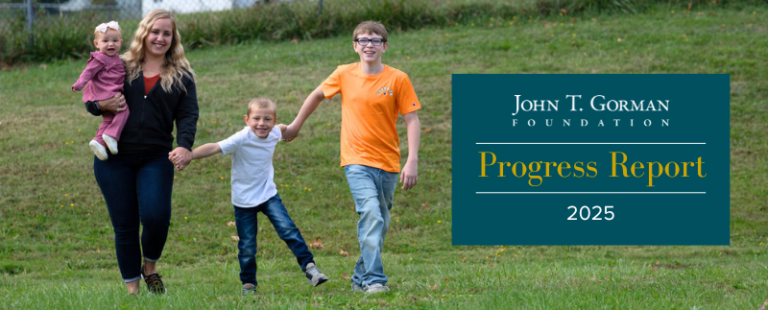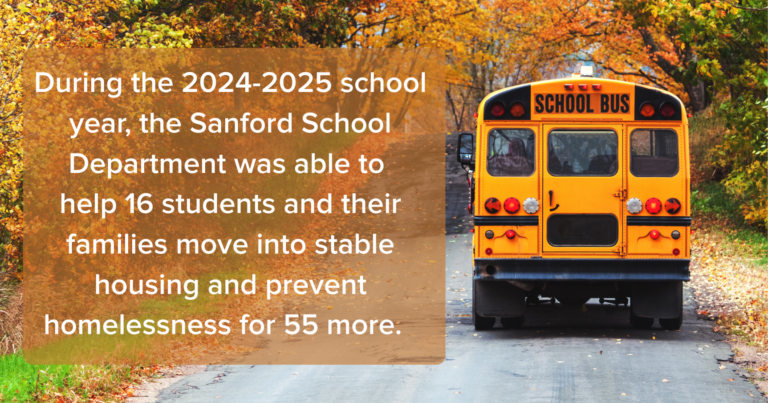John T. Gorman Foundation working with partners to pilot new approaches for closing family transportation gaps
To achieve their aspirations, families must first have steady access to basic resources and services. Essentials like food security, housing, and childcare form the foundation on which families build their success. Maine’s rural landscape makes transportation another vital element. Work, school, childcare, and other services can be spread out and many miles from home. Without a reliable source of transportation, these key resources – and the difference they make for families – can be out of reach.
Across our partnerships and initiatives, families have cited transportation as a significant obstacle in accessing what they need to thrive. Whether families are trying to join the workforce in Bangor, pursue education in Franklin County, or connect to early childhood services in Midcoast Maine, transportation access has repeatedly surfaced as an issue that needs to be addressed.
The Foundation recently released a report – Moving Toward Solutions: Addressing the Transportation Challenges of Maine Families – to bring greater awareness to this issue as well as highlight possible approaches for closing transportation gaps at local and statewide levels.
In addition, the Foundation has worked directly with partners to pilot several of these strategies – three of which are summarized below. While there’s no one-size-fits-all fix for Maine’s transportation issues, these creative solutions shed light on how approaches can be tailored to address the unique needs of our communities.
Car Repair Assistance
For families on limited budgets, an expensive car repair can quickly become a full-scale financial emergency. A sidelined vehicle could mean lost wages or even lost employment.
To help families out during these challenging situations, the United Way of the Tri-Valley Area (UWTVA) launched Don’t Despair Car Repair. This unique program provides financial assistance to help income-eligible households make critical repairs to keep their vehicles on the road. Applicants are also connected with matched savings programs to help them save for future repairs or the purchase of a new vehicle. Nearly 70 households in Western Maine have benefited from the program.
Driver’s Education Support
The Foundation’s report found that 90,000 Maine adults do not have a driver’s license, including 10% of young adults in their 20s. Contributing factors include the high cost of driver’s education – around $600 – and lack of access to a practice vehicle.
Bangor Housing Director of Resident Services Liz Marsh said this holds true among the older youth they serve – as well as many adult heads of household. “This isn’t just an issue with 15- or 16-year-olds not being able to take driver’s ed after their birthday,” said Marsh. “This is an issue with their parents not being able to drive as well.” For both groups, not having a license can limit access to workforce and educational opportunities.
Recognizing the need, Bangor Housing has worked with a local driver’s education provider to deliver courses and driving hours at a reduced rate. With support from the Foundation and other funding sources, the program has allowed 40 residents to complete the course for free, preparing older youth to take the learner’s permit exam and adults age 21 and over to take their driver’s test.
Workforce Transportation
In preventing individuals from participating in the workforce, transportation gaps also make it more difficult for employers to fill open positions. This shared challenge creates an opportunity to engage cross-sector partnerships aimed at finding solutions.
With Foundation support, the Lewiston-Auburn Metropolitan Area Chamber of Commerce is currently working with large employers in the region to assess workforce transportation needs and test out strategies to create consistent, reliable, and stable solutions that center the needs of workers and their families. Efforts are focusing on the area’s largest growth sectors, including healthcare, education, manufacturing, and service sectors. While still in development, the plan is to test initiatives at several sites, tailoring strategies to meet the needs of both urban and rural workers. The Chamber’s recent collaboration with Western Maine Transportation Services to launch WorxLink — a highly successful low-fee shuttle transporting workers throughout the area — provides an example of what possible solutions could look like.
The goal of this work is twofold: helping residents reach higher-paying career opportunities while enabling employers to access a broader pool of talent.
“If you want people to have the opportunity to elevate themselves through their careers,” said Brian Pickard, the Chamber’s vice president of finance and operations, “transportation has got to be a part of the conversation.”




